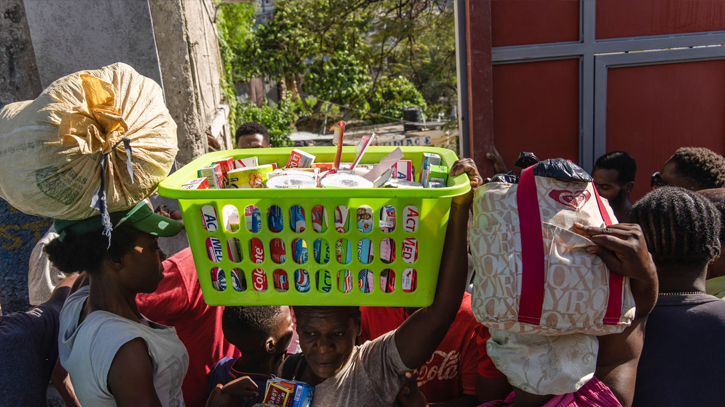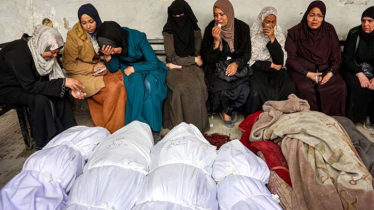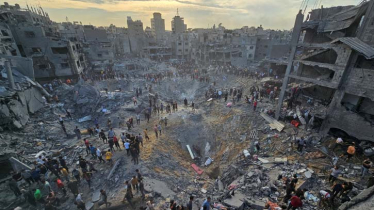
Photo: Collected
As the sun sets, a burly man bellows into a megaphone while a curious crowd gathers around him. Next to him is a small cardboard box with several banknotes worth 10 Haitian gourdes — about 7 U.S. cents.
“Everyone give whatever they have!” the man shouts as he grabs the arms and hands of people entering a neighborhood in the capital of Port-au-Prince that has been targeted by violent gangs.
The community recently voted to buy a metal barricade and install it themselves to try to protect residents from the unrelenting violence that killed or injured more than 2,500 people in Haiti from January to March.
“Every day I wake up and find a dead body,” said Noune-Carme Manoune, an immigration officer.
Life in Port-au-Prince has become a game of survival, pushing Haitians to new limits as they scramble to stay safe and alive while gangs overwhelm the police and the government remains largely absent. Some are installing metal barricades. Others press hard on the gas while driving near gang-controlled areas. The few who can afford it stockpile water, food, money and medication, supplies of which have dwindled since the main international airport closed in early March. The country's biggest seaport is largely paralyzed by marauding gangs.
“People living in the capital are locked in, they have nowhere to go,” Philippe Branchat, International Organization for Migration chief in Haiti, said in a recent statement. “The capital is surrounded by armed groups and danger. It is a city under siege.”
Phones ping often with alerts reporting gunfire, kidnappings and fatal shootings, and some supermarkets have so many armed guards that they resemble small police stations.
Gang attacks used to occur only in certain areas, but now they can happen anywhere, any time. Staying home does not guarantee safety: One man playing with his daughter at home was shot in the back by a stray bullet. Others have been killed.
Schools and gas stations are shuttered, with fuel on the black market selling for $9 a gallon, roughly three times the official price. Banks have prohibited customers from withdrawing more than $100 a day, and checks that used to take three days to clear now take a month or more. Police officers have to wait weeks to be paid.
“Everyone is under stress,” said Isidore Gédéon, a 38-year-old musician. “After the prison break, people don’t trust anyone. The state doesn’t have control.”
Gangs that control an estimated 80% of Port-au-Prince launched coordinated attacks on Feb. 29, targeting critical state infrastructure. They set fire to police stations, shot up the airport and stormed into Haiti’s two biggest prisons, releasing more than 4,000 inmates.
At the time, Prime Minister Ariel Henry was visiting Kenya to push for the U.N.-backed deployment of a police force. Henry remains locked out of Haiti, and a transitional presidential council tasked with selecting the country’s next prime minister and Cabinet could be sworn in as early as this week. Henry has pledged to resign once a new leader is installed.
Few believe this will end the crisis. It’s not only the gangs unleashing violence; Haitians have embraced a vigilante movement known as “bwa kale,” that has killed several hundred suspected gang members or their associates.
Messenger/Mumu








